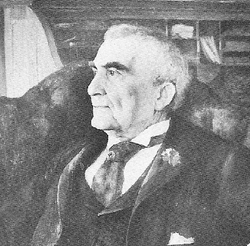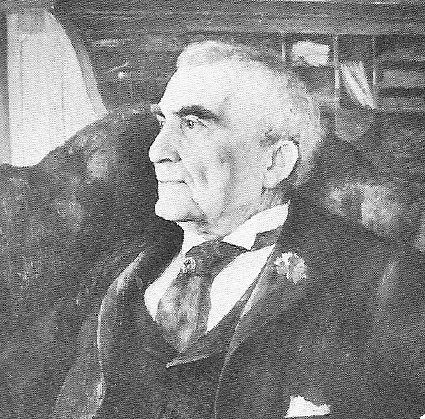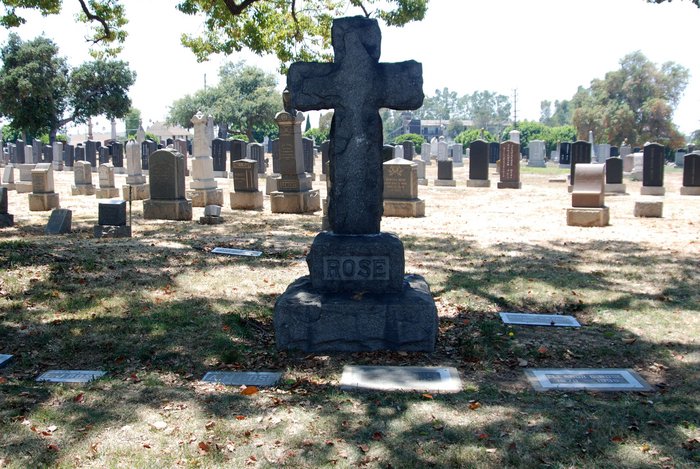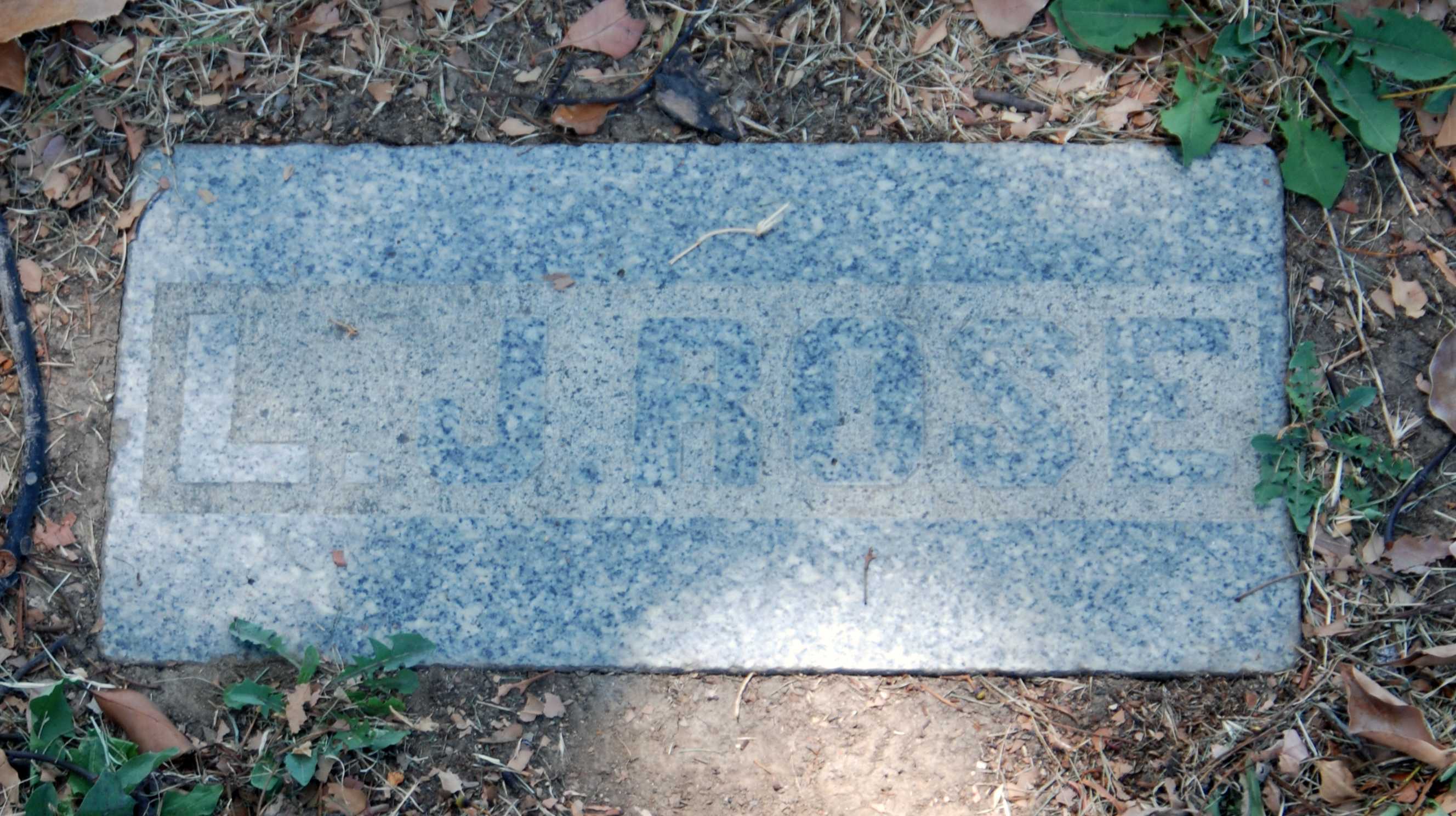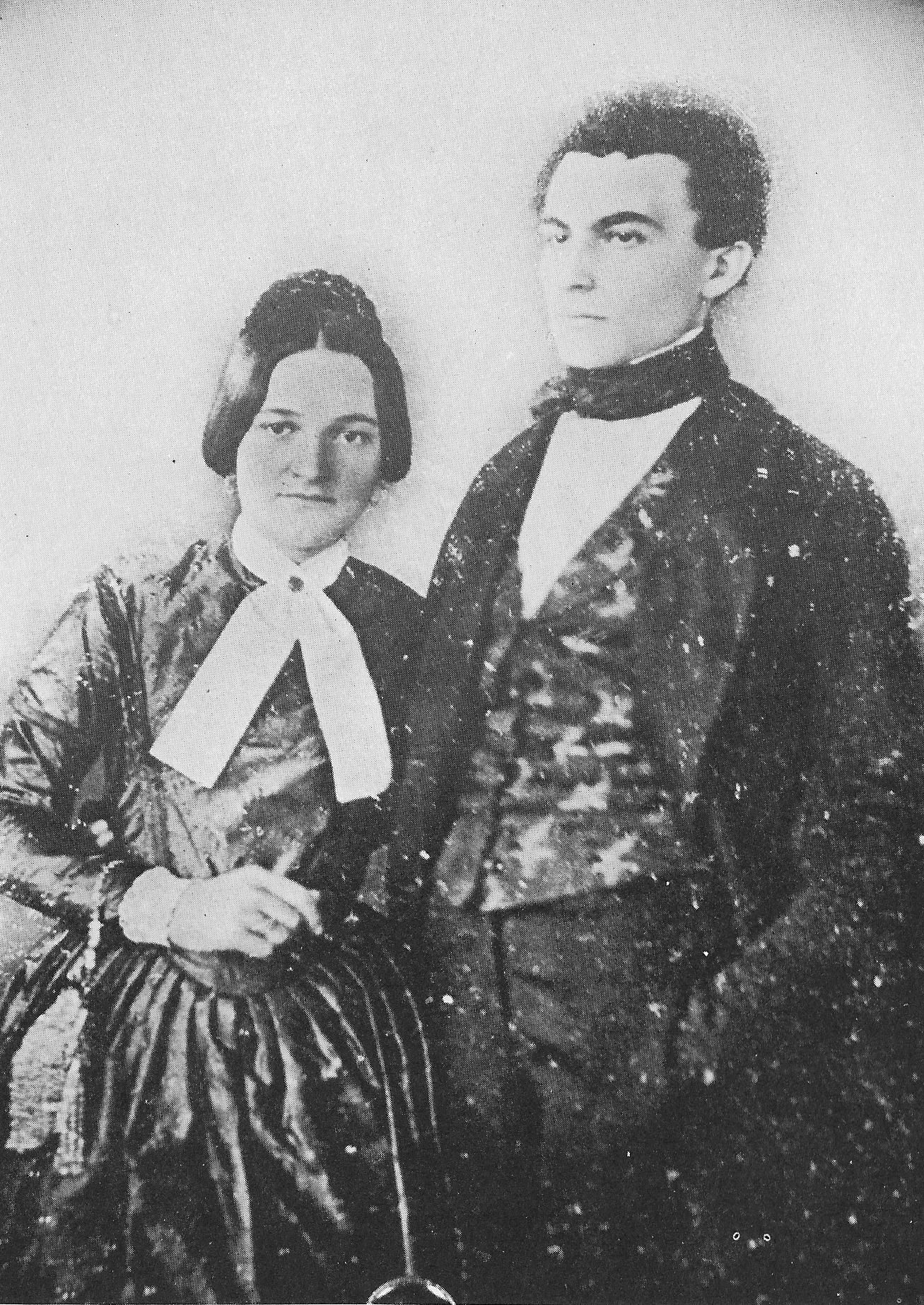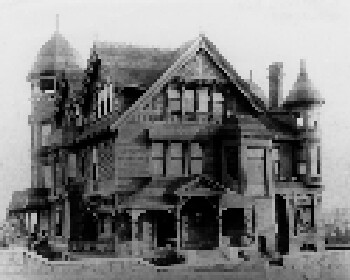Leonard John Rose (L.J.), was a native of Bavaria who immigrated to New Orleans when he was twelve. He received an education in Illinois and engaged in early business ventures in Iowa before organizing a party, including his wife Amanda and two children, to travel to California in 1857. After crossing the Colorado River, the group was attacked by a Native American tribe, incurring losses of life and supplies. Rose and his family survived and temporarily settled in New Mexico. The family made it to California in 1860 and established themselves in the San Gabriel Valley.
Sunny Slope was the name of the renowned ranch Rose acquired shortly after arriving in Southern California. Located in what is now the eastern end of Pasadena, the 1,900 acre property contained countess lemon, orange and olive trees, but became famous for its vineyards. Vines were imported from Spain, Italy and Peru, and the wine and brandy generated from Sunny Slope made L.J. Rose a household name and a very wealthy man. He also found success as a breeder with a horse ranch named Rosemead, where the city of the same name now stands.
L.J Rose had made Rosemead well known across the nation for its vineyards and famous trotting horses. He was the first president of the Southern California Agricultural Society, which built the first horse race track in Los Angeles at the site of the present Exposition Park. He was a charter member of the State Board of Viticulture and assisted in the negotiation of bringing the Southern Pacific Railroad line into Los Angeles. In 1880 he served in the California State Senate.
Despite his tremendous success, by 1899 bad investments had left Rose deeply in debt with properties so heavily mortgaged that selling them would have been fruitless. On May 17, a despondent Rose told his wife he was going to Ventura on business and would be returning the next day. Instead, he returned to Los Angeles that night and drafted a suicide note addressed to the his wife at the Mansion, and mailed it. At 10 o'clock the next morning, Mrs. Rose received the letter with Rose stating financial ruin as the reason for taking his own life. He continued the letter by bidding an affectionate farewell to his family.
Also included was a postscript stating that his body could be found in the backyard of the Mansion.
Family present at the time "were too overwhelmed with apprehension to go to the yard to see whether his dead body was really there." Mrs. Rose's son-in-law was summoned from his office Downtown and upon arrival found "his father-in-law lying face downward in a little hollow at the rear of the lot. His head reclined on his hat, and in one hand was clasped a bunch of carnations." Miraculously, Rose was still alive and was taken to a hospital where his stomach was pumped to remove the 65 morphine pills he had swallowed. Despite the efforts to save his life, too much of the drug had been absorbed into his system and Leonard John Rose died at the age of 72.
Cause of death: Suicide by morphine poisoning.
Leonard John Rose (L.J.), was a native of Bavaria who immigrated to New Orleans when he was twelve. He received an education in Illinois and engaged in early business ventures in Iowa before organizing a party, including his wife Amanda and two children, to travel to California in 1857. After crossing the Colorado River, the group was attacked by a Native American tribe, incurring losses of life and supplies. Rose and his family survived and temporarily settled in New Mexico. The family made it to California in 1860 and established themselves in the San Gabriel Valley.
Sunny Slope was the name of the renowned ranch Rose acquired shortly after arriving in Southern California. Located in what is now the eastern end of Pasadena, the 1,900 acre property contained countess lemon, orange and olive trees, but became famous for its vineyards. Vines were imported from Spain, Italy and Peru, and the wine and brandy generated from Sunny Slope made L.J. Rose a household name and a very wealthy man. He also found success as a breeder with a horse ranch named Rosemead, where the city of the same name now stands.
L.J Rose had made Rosemead well known across the nation for its vineyards and famous trotting horses. He was the first president of the Southern California Agricultural Society, which built the first horse race track in Los Angeles at the site of the present Exposition Park. He was a charter member of the State Board of Viticulture and assisted in the negotiation of bringing the Southern Pacific Railroad line into Los Angeles. In 1880 he served in the California State Senate.
Despite his tremendous success, by 1899 bad investments had left Rose deeply in debt with properties so heavily mortgaged that selling them would have been fruitless. On May 17, a despondent Rose told his wife he was going to Ventura on business and would be returning the next day. Instead, he returned to Los Angeles that night and drafted a suicide note addressed to the his wife at the Mansion, and mailed it. At 10 o'clock the next morning, Mrs. Rose received the letter with Rose stating financial ruin as the reason for taking his own life. He continued the letter by bidding an affectionate farewell to his family.
Also included was a postscript stating that his body could be found in the backyard of the Mansion.
Family present at the time "were too overwhelmed with apprehension to go to the yard to see whether his dead body was really there." Mrs. Rose's son-in-law was summoned from his office Downtown and upon arrival found "his father-in-law lying face downward in a little hollow at the rear of the lot. His head reclined on his hat, and in one hand was clasped a bunch of carnations." Miraculously, Rose was still alive and was taken to a hospital where his stomach was pumped to remove the 65 morphine pills he had swallowed. Despite the efforts to save his life, too much of the drug had been absorbed into his system and Leonard John Rose died at the age of 72.
Cause of death: Suicide by morphine poisoning.
Family Members
Advertisement
Advertisement
